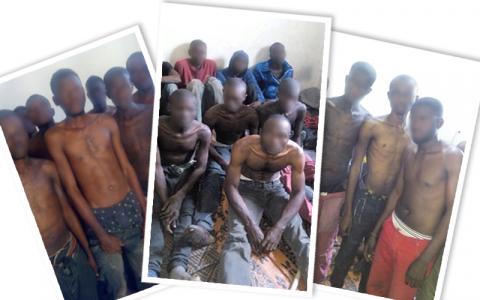The International Organization for Migration (IOM) on Tuesday announced that its staff in Niger and Libya have documented “shocking events” of the trading of migrants on the North African migrant routes in Libya.
The IOM in a statement on its website described the migrant routes as ‘slave markets’ where hundreds of young Africans traveling to Libya are tormented.
A Senegalese migrant whose name was not given but was rescued told the IOM staff that while trying to travel north through the Sahara, he arrived in Agadez, Niger, where he was told he would have to pay about USD 320 to continue to Libya.
An IOM staff from Niger also reported that “Sub-Saharan migrants were being sold and bought by Libyans, with the support of Ghanaians and Nigerians who work for them,”
That claim was confirmed by the Senegalese migrant who described being ‘bought’ and then being brought to his first ‘prison’, a private home where more than 100 migrants were held as hostages.
According to the IOM kidnappers make the migrants call their families back home, and often suffered beatings while on the phone so that their family members could hear them being tortured.
This Senegalese migrant was asked to pay about USD 480 to be released from his first prison, which he couldn’t raise.
He was then ‘bought’ by another Libyan, who brought him to a bigger house – where a new price was set for his release: about USD 970, to be paid via Western Union or Money Gram to someone called ‘Alhadji Balde’, said to be in Ghana.
Slave markets. In Libya. Today.
This story is also similar to many stories collected by IOM at landing points in Italy https://t.co/T0LLbg3HZe— Flavio Di Giacomo (@fladig) April 11, 2017
Similar accounts like that of the Senegalese migrant were shared by other migrants according to the statement from the IOM.
Shocking events on African migrant routes, described as ‘slave markets’ tormenting young men in #Libya: https://t.co/GQ42OqN1ET
— IOM (@UNmigration) April 11, 2017
Source: Africafeeds.com



